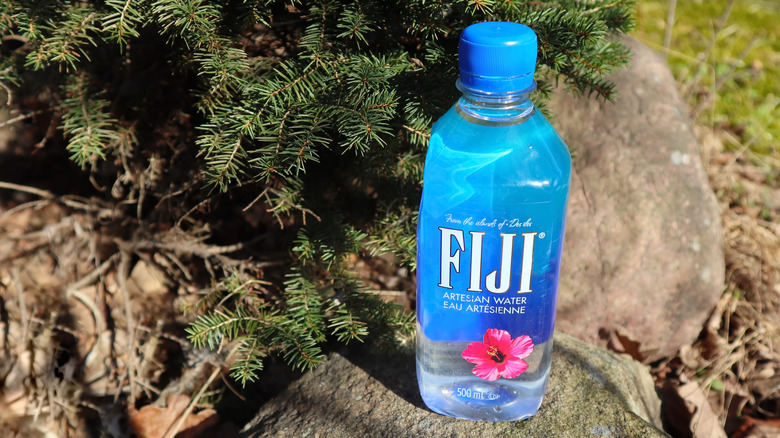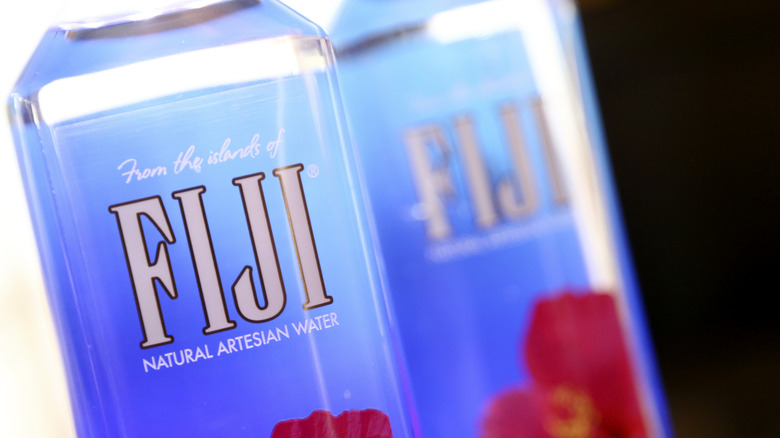The Real Reason Fiji Water Doesn't Use Glass Bottles
Fiji Water takes pains to appear sustainable. Or at least they put in the work to have good PR karma when it comes to environmental stewardship. In 2020, for example, the Fiji Sun reported that Fiji Water helped reforest the area around the village of Navala. In the long past year of 2007, Fiji Water announced via EurekaAlert! that the company would implement a sustainability strategy for its future growth. This included reducing the amount of CO2 emitted by the company during its operations, covering 120% of the emissions it cannot reduce with carbon offsets, and protecting Fiji's natural environment.
Some, however, may wonder how such lofty goals square up to the plastic bottles in which Fiji Water keeps its water. In a talk with Inhabitat, Barbara Chung, Fiji Water's senior manager of sustainable growth, gave some arguments in favor of their product. Notably, the shape of the bottle means that 10% fewer shipping containers are used, and the fact Fiji Water makes its own bottles means there's less shipping of materials. Moreover, if customers recycled the bottles, Chung noted, the carbon footprint made by a bottle of Fiji Water would decrease by 30%. Still, that doesn't answer the question of why the bottles have to be made from plastic.
Plastic maintains the quality of water
Evidently, Fiji Water is aware of the contradiction intrinsic to the sustainable growth of a company that sells plastic water bottles. It's clear because, under the FAQs section on its website, they dedicate a paragraph to the question of whether Fiji Water uses glass bottles. Instead of glass, Fiji Water explains, they use high-grade PET bottles that better keep the quality of the water within, don't break, and minimize its environmental impact. Fiji Water specifies that the bottles protect "against oxygen migration and carbon dioxide which can affect taste." In other words, plastic bottles are key to the brand's strategy.
According to Thought Co, polyethylene terephthalate (PET) plastics are a type of plastic that is safe to drink from. What makes it more environmentally friendly than other plastics is that it is highly recyclable. Moreover, it can be recycled into things that are not more bottles, like undergarments, certain carpets, and car bumpers. Still, some may call this a stop-gap measure and not a business-wide overhaul that a sustainable company might need.

